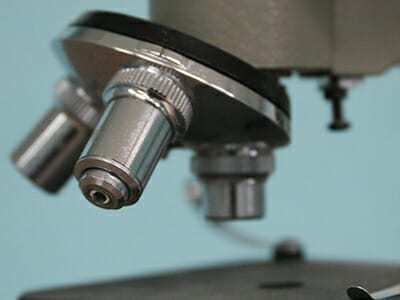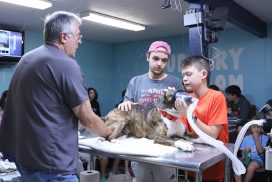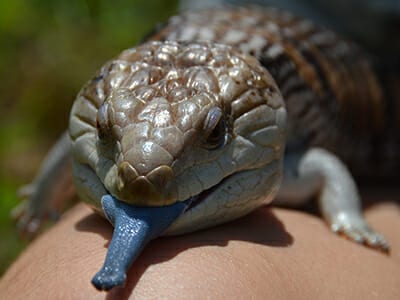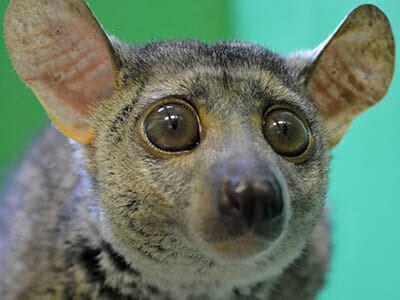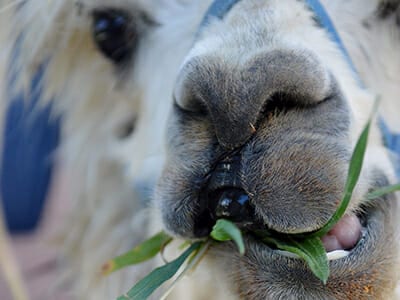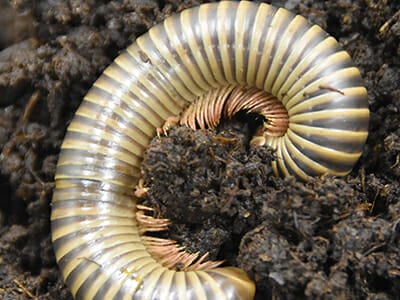Animals are our Specialty,
You call us a Zoo Camp or an Animal Camp!
We prefer to call ourselves an Animal Camp as so many of our campers come to camp for their love of animals! Our campers return year after year because of camp and the friends they make, but they love to see our animals and even come back to see specific ones! We have over one hundred different kinds of animals at camp and offer MANY animal related activities. More, in fact, than any other residential summer camp, anywhere. This is why we feel it is right to call ourselves the Ultimate Animal Camp!
There aren't a lot of animal summer camps out there to compare us to, and none with as an extensive program as we have. As far as we know, we are the only residential summer camp that can make this claim. Despite having a zoo, we prefer the title "Animal Camp" over "Zoo Camp". Unlike your typical zoo or zoo camp, our campers are able to do so much more than just see animals. We offer hands-on animal encounters, with opportunities to get up close, feed, touch and hold more animals than anyplace else. Campers can feed lemurs, talk with a parrot, walk with an alpaca, hold a 7 foot snake, prickly hedgehog or even a baby wallaby! Whatever you call us, animals are definitely our specialty. At Cub Creek Science Camp our animals become a bridge for teaching and growing many skills in our campers, including compassion, responsibility, self esteem and problem solving. Our goal is that the knowledge, understanding and compassion learned for the animals at camp, will eventually lead our campers to become adults with a desire to take care of each other, the planet, and all its inhabitants.
Classes
Courses
Look below for a list of our animal related courses and classes.
Guaranteed for Everyone!
While other courses offered at Cub Creek may be limited in spaces, Jr. Vet, Advanced Jr. Vet, and Adopt and Animal are guaranteed courses for all our campers. We know that many campers come to our camp for these exact activities, so we have prepared enough Instructors and materials to accommodate as many campers as possible. These activities are offered multiple times a day all summer long, so everyone has a chance to learn!
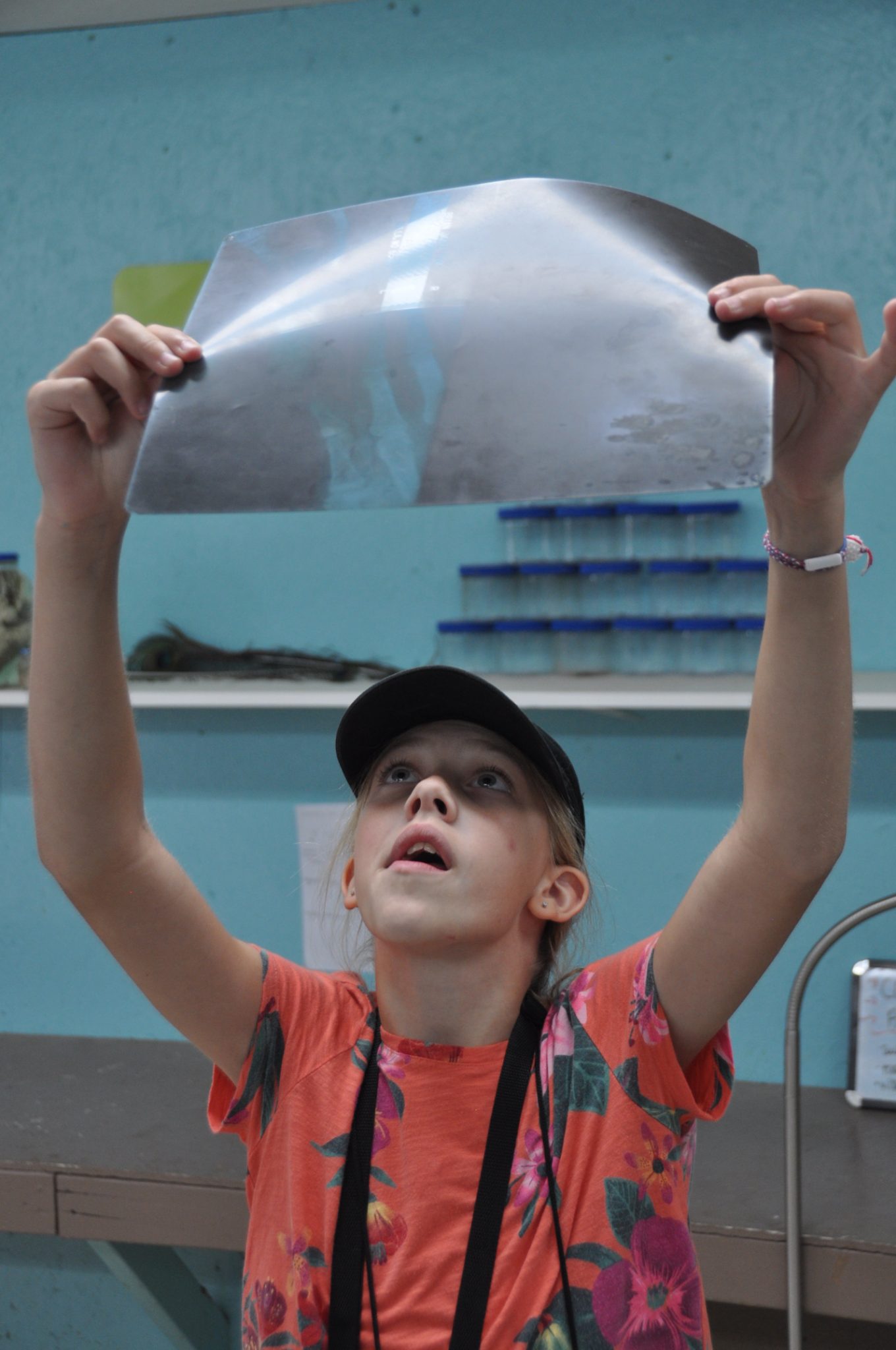
Junior Veterinarian
More commonly called, Junior Vet, this week long activity was designed especially for kids who think they might want to become a Veterinarian. Through hands-on activities and with the assistance of a passionate instructor, campers learn real Veterinary skills! Campers who have taken Jr. Vet are able to take our Advanced Jr. Vet program.
Basic Animal Examinations - Campers learn the signs for an animals' ideal health. To introduce what being a vet is like, they are going to start off with learning how to do a basic exam - a technique every vet needs to master as they will do one on every animal they work with.
Learning Suturing Techniques - All vets need to be able to stitch up an animal. This may be due to an invasive surgery or to stitch up a large wound. Knowing how to make precise, neat stitches is important to reduce the change of infection. Campers will start practicing on a surture board and then upgrade to real needles and suture sting on a banana.
Watch a Live Surgery - Our Veterinarian comes to camp one day each week and performs animal examinations and surgeries right here at camp! Typical surgeries are spays and neuters performed on dogs and cats from our local animal shelter. However, campers have been able to watch some pretty amazing things over the years! Alpacas, zebus, ducks, and more have visited our surgery room for a procedure allowing campers to observe and ask questions.
Giving Injections - Using dyed water and injecting it into oranges, campers learn and practice how to draw and administer medications in this class. Campers will learn how, where and why injections are given to animals under a Veterinarian's care.
Skeletal Anatomy - Campers will learn how to identify the different bones in the body across a variety of species. Using diagrams, posters and a live animal, camoers will tested on their skeletal knowledge befoer looking at X-rays to see bones in a new light.
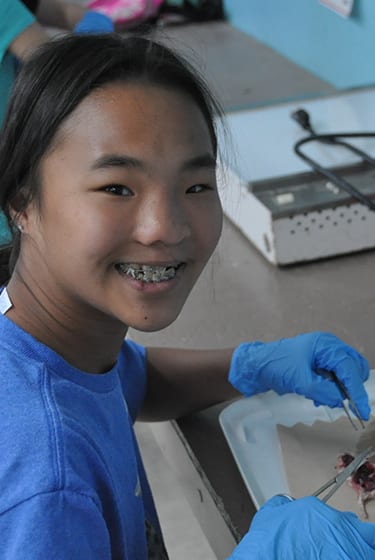
Advanced Junior Vet
Veterinary medicine goes beyond basic care—this course introduces campers to more advanced topics in animal health and treatment. Campers will explore nutrition, parasites, wound care, and internal anatomy, along with the exciting opportunity to observe a live surgery. **Updates to this course are coming soon**
Nutrition - Campers will learn about the diets of different animals and how proper nutrition keeps them healthy. They will tour camp’s feed rooms and compare various types of dog food to understand how diet impacts an animal’s well-being.
Parasites - Campers will discover internal and external parasites that affect animals. They will collect stool and skin samples, prepare slides, and use microscopes to analyze them for parasites and other abnormalities.
Watch a Live Surgery - A veterinarian will visit camp to perform a live surgery, typically a spay or neuter for rescued animals (cats and dogs). Campers will observe the procedure and have the chance to ask the vet questions about their career and the surgery process.
Wound Care - Campers will practice basic first aid for animals, including how to assess, clean, and bandage wounds. They will also learn about common medications used to treat injured animals.
Internal Anatomy - Campers will gain hands-on experience by participating in a mouse dissection. They will identify major organs, their locations, functions, and how they connect within the body to better understand animal anatomy.
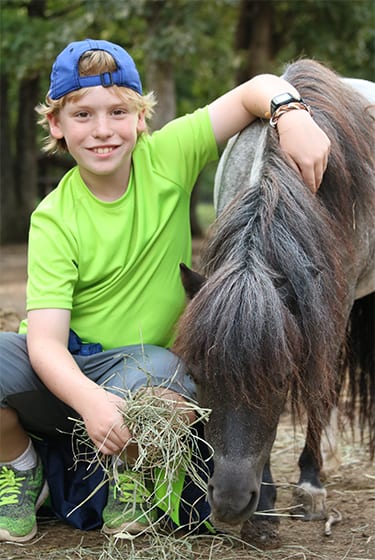
Adopt An Animal
One of camp’s most popular activities, Adopt an Animal gives campers a hands-on experience in responsible pet care. Each camper chooses an animal from our 300+ residents and helps feed, clean, and care for them throughout the week—just like our Animal Team!
Introductions - Many campers come to camp knowing which animal they would like to adopt and some are deciding when they get here! The first day is spent getting to know all the animals in a camper's chosen area, learning the basics of how we take care of the animals at camp, and how to handle/interact with their animal. At the end of this class they'll decide which of the animals they want to adopt!
Feeding and Cleaning - Each animal has a special diet at camp. Campers are learning what their animal eats at camp to help match what they would be eating in the wild. Campers are also now assuming the responsibility of maintaining the cleanliness of their animal's enclosure.
Health and Care - Campers learn about preventative health care for animals, from nail trimming and teeth cleaning to larger procedures like spaying and neutering. They also explore the costs and responsibilities of keeping animals healthy.
Animal Enrichment - Animals in captivity need ways to prevent boredom and encourage play. Campers visit our Enrichment Room and make toys and treats for their adopted animals. We love to see campers engaging with their animal and making complex enrichment for them.
Ecology and Conservation - Campers discover how their adopted animal interacts in the wild and how human actions impact wildlife. The week ends with a chance to say goodbye and reflect on what they’ve learned.
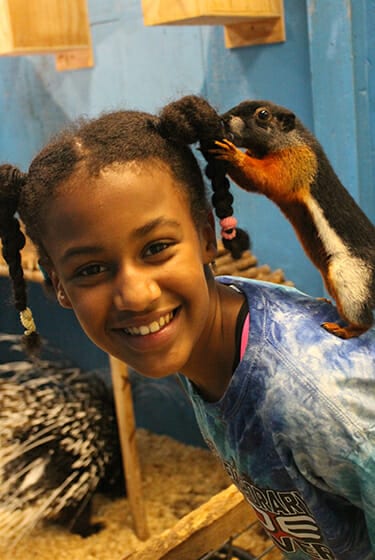
Amazing Animals
Get up close and personal with every animal at the Ranch! This course takes you through all the animal areas of camp to gives you encounters while learning! Understand what makes birds different than mammals and reptiles; Compare and contrast the different species of foxes, porcupines, and parrots; And learn why large ears, feet, and tails would matter for some animals out in the wild. *Updates coming soon*
Fish and Frogs - Campers will learn what the 5 types of chordata are - fish, mammals, reptiles, birds and amphibians. They will visit the nature center to identify each type as well as learn about the special features of fish.
Mammals - At camp, we have more mammals than any other kind of animal! There are so many cool and interesting things that can be learned about all the mammals we have at camp! From hoofstock to canines, campers will be learning and interacting with camp's largest and smallest creatures!
Birds - Birds are one of the Earth's most fascinating creatures! At camp, we have 20 different species of birds! Campers will learn why a parrot's foot is different than a chicken's and why a bird's beak is the ultimate tool for survival!
Creepy Crawly Critters - Our Creepy Crawly room is where campers will spend most their time learning about amphibians, spiders, scorpion, millipedes, and more. But there is even more to see outside. Campers will look for dragonflies and walking sticks. They're easy to find..if you know where to look!
Reptiles - Reptiles are very popular at Cub Creek. During this class, campers will learn about the cold blooded animals and take them outside for sunbathing! Out Black Throated Monitor even likes to be taken for walks!
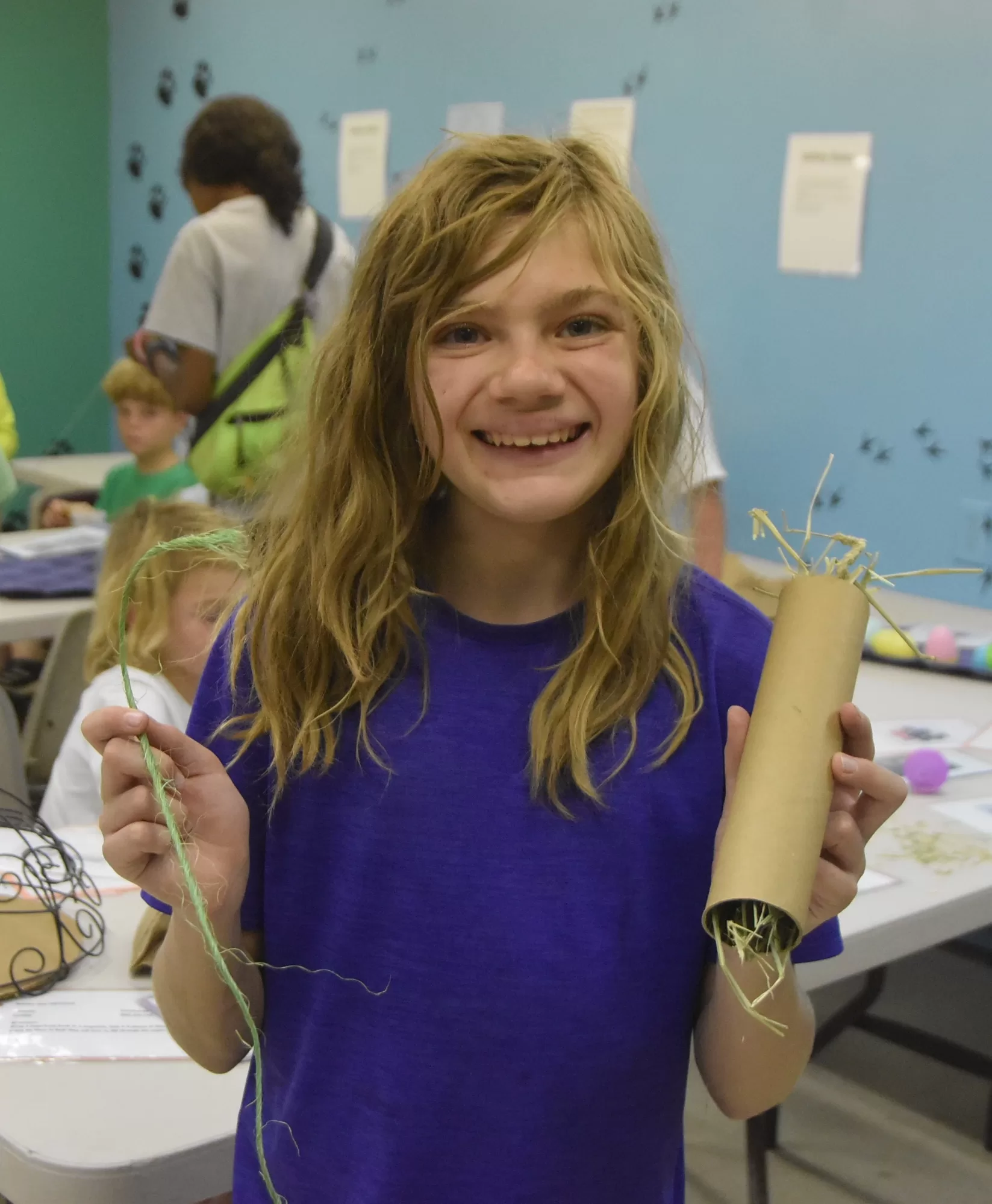
Animal Care and Enrichment
Animals in captivity, such as pets, need ways to prevent boredom and encourage play. In this course, campers will learn how to care for and play with their animal friends. Campers will take animals for walks, make them toys and treats, and learn to care for their coats.
Animal Enrichment Different animals present different behaviors based on how they would act in the wild and their enrichment needs to match that in order to be effective.Learn the basics of preventing animal boredom in captivity through simple activities and new scents and sounds.
Bird Play Learn about the geniuses in a feathered body that live here. Parrots are known as some of the smartest animals in the world, making meeting their enrichment needs very important to maintain.
Animal Training Objects are not the only way to make an animal use their brain. Campers will learn operant and classical conditioning by teaching animals how to learn tricks and participate in their own veterinary care.
Feeding Fun For Animals Being served your food on a silver platter sounds great, until it happens every day of your life. In the wild, much of an animal’s day is spent finding food and we look to mimic that to allow the animals to exercise more.
Animal Grooming Grooming is not just a beauty treatment for our pets! Grooming helps keep animal skin, fur, and nails healthy. Campers will wash and brush a camp animal and also learn about other grooming tasks such as nail trims and dust baths.
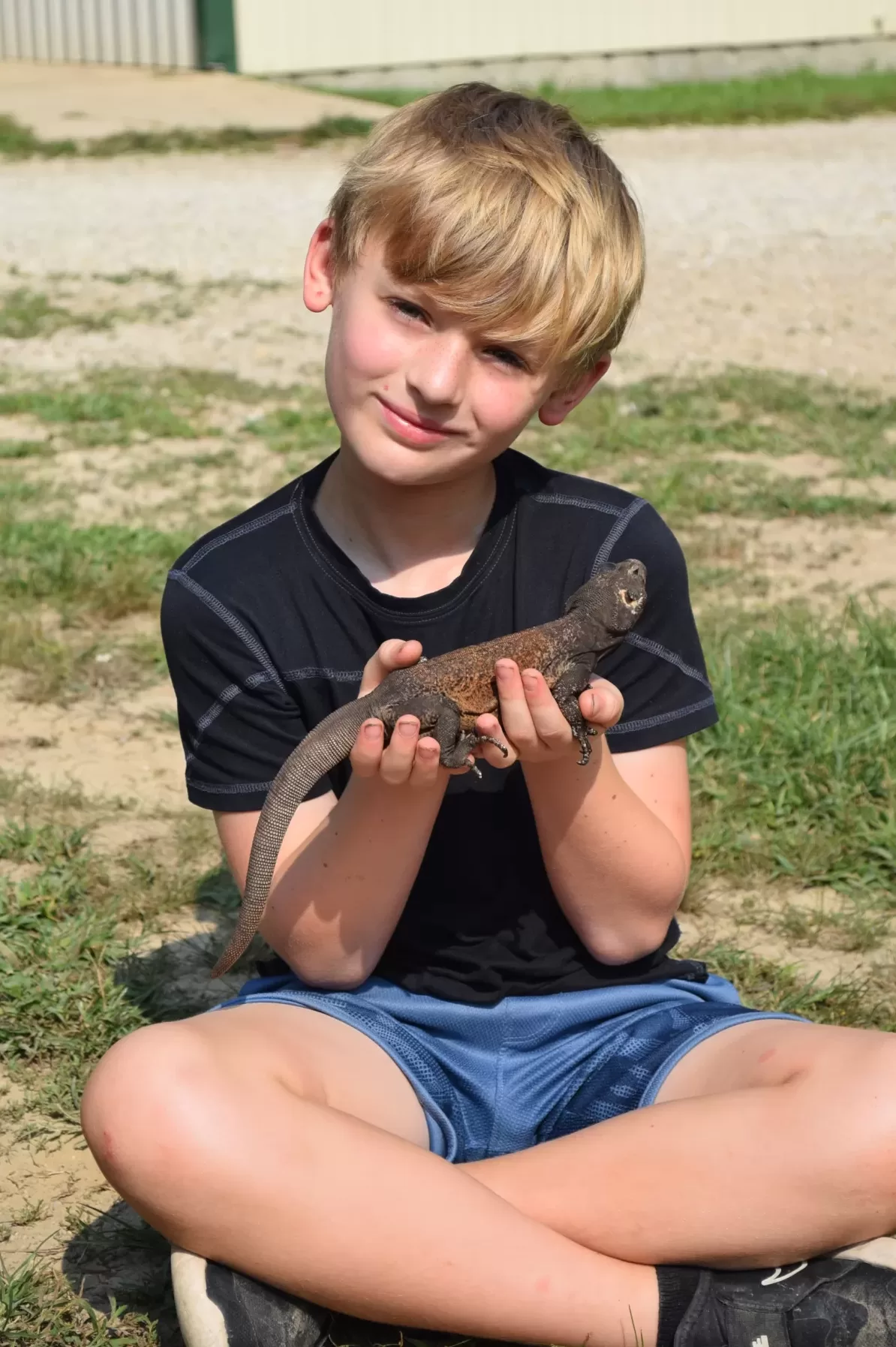
Additional Animal Classes
At Cub Creek, we want to offer as many animal activities as possible for campers. This way, campers who come to our camp for the animals can have even more opportunity to spend time learning with them. Or if a camper prefers other courses, they can spend a few of their class periods with animals. Below you will find even more Animal Classes offered at camp.
Lemurs and Wallabies - Campers visit Lemur Island and wallaby country for special encounters with our lemurs, cavies, and wallabies.
Nursery and Sloths - Campers visit the Nursery and The Sloth Room for special encounters with our baby animals and sloths.
Treat Making - Campers will learn about the dietary needs of a variety of animals and how to make safe and nutritious treats from everyday staples. They will then get to share the fruits of their labor with some of our animals at camp.
Reptile Sunbathing - Basking in the sunlight is an important natural behavior for reptiles. Relax outside with a snake or lizard so they get the needed sun to keep them healthy.
Hiking with Animals - Campers will learn about how to halter and walk different animals while embarking on hikes across the camp's many beautiful trails.
Did you think that was it? We have plenty of other classes and courses offered in Science, Adventure, Arts & Crafts, Nature and even more! Click the button to your right to explore more.

